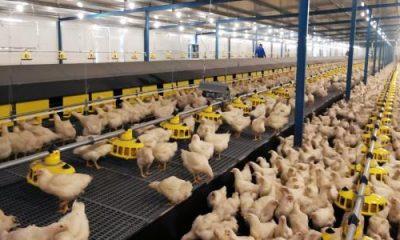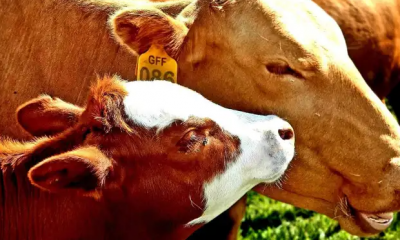411
Foreign Farmers Flock to South Africa: Why Neighboring Countries Are Seeking Opportunities in SA’s Agricultural Sector

South Africa’s agricultural sector is attracting a wave of foreign farmers and workers from neighboring countries like Zimbabwe, Lesotho, Namibia, and Mozambique. Recent data from the Department of Employment and Labour (DEL) reveals that 91% of approved work visas in 2024 were for agricultural roles, highlighting the growing trend of migrant workers seeking opportunities in South Africa’s robust farming industry.
A Surge in Agricultural Work Visas
In response to a Parliamentary Q&A, the DEL disclosed that it processed 60 corporate work visa applications in 2024, covering 6,255 migrant workers. While 86% of these applications were rejected, 14% (872 workers) received positive recommendations. Notably, the majority of approved visas were for farmers and agricultural workers, with Zimbabwe (445), Lesotho (250), Namibia (70), and Mozambique (30) leading the list of source countries.
The DEL clarified that while it provides recommendations on work visa applications, the final decision rests with the Department of Home Affairs (DHA). The DHA consults with various departments, including those in the Security Cluster, before approving or waiving recommendations.
Why Are They Coming to South Africa?
According to Wandile Sihlobo, chief economist at the Agricultural Business Chamber of South Africa (Agbiz), the influx of foreign farmers and workers is driven by South Africa’s competitive wages and thriving agricultural sector.
“South Africa’s agriculture is robust and growing,” Sihlobo told BusinessTech. “At the end of the last quarter of 2024, about 924,000 people were employed in primary agriculture. Workers from neighboring countries are attracted by the higher wages offered here.”
For instance, South Africa’s revised agricultural minimum wage stands at R28.79 per hour, significantly higher than Namibia’s R10 per hour. Additionally, some farmers provide lodging, making the move even more appealing. Workers from Lesotho, for example, bring specialized skills like sheep shearing, which are highly valued in the sector.
Balancing Local and Foreign Labor
While the influx of foreign workers benefits South Africa’s agricultural sector, Sihlobo emphasized the importance of prioritizing local labor. “South African workers should receive primary work opportunities, with neighboring countries supplementing the workforce when necessary,” he said.
Despite the positive outlook, challenges remain. Agbiz’s economic report highlights risks such as international trade tensions, port inefficiencies, poor infrastructure, and rising input costs. However, the sector’s resilience suggests a potential recovery in employment conditions in 2025, barring significant trade-related disruptions.
Challenges and Opportunities Ahead
South Africa’s agricultural sector faces a complex landscape. While the mild increase in the minimum wage adds to input cost pressures, it is not expected to be a major hindrance. However, global factors like the African Growth and Opportunity Act (AGOA) and geopolitical tensions could impact exports and farm profitability.
Domestically, issues such as crime, stock theft, and deteriorating municipal services pose significant risks to long-term growth. Addressing these challenges will be crucial for sustaining the sector’s momentum and ensuring it remains an attractive destination for both local and foreign workers.
A Growing Trend with Global Implications
The trend of foreign farmers flocking to South Africa underscores the country’s position as a regional agricultural powerhouse. As the sector continues to grow, it offers a lifeline to workers from neighboring countries while contributing to South Africa’s economic stability.
However, striking a balance between local and foreign labor, addressing infrastructure challenges, and navigating global trade dynamics will be key to ensuring the sector’s sustainable growth. For now, South Africa’s farms remain a beacon of opportunity for those seeking a better future.
Follow Joburg ETC on Facebook, Twitter , TikTok and Instagram
For more News in Johannesburg, visit joburgetc.com


























